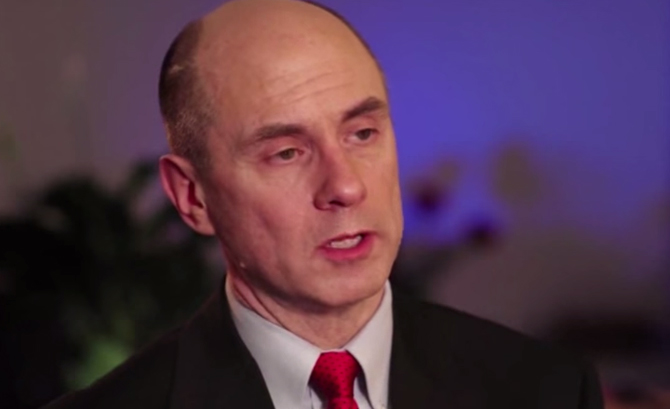This crap absolutely should be turned into a political bloodbath for those attempting to close all dispensaries. Need News at 11 video of epileptic kids having seizures, cancer chemo patients throwing up, MS patients so bound by muscles tremors that they can't move, veterans who can't sleep and are suicidal from their PSTD, chronic pain patients narc'd out of their mind as addictive pharma is the only other option, etc, etc, etc.
Activists in MI, this shithead Bailey is giving you a LOT of ammunition.
Michigan’s Dumb and Damaging Plan to Regulate Marijuana by Shutting It Down Goes Forward
Michigan will, in all likelihood, become the next state to legalize marijuana for adults,
if a highly popular ballot measure for the November 2018 election is approved by voters. If polling and results from other states are any indication—and, generally speaking, such metrics are—in a little less than 18 months time, anyone aged 21 or over will be able to stroll into a commercial storefront in Detroit and purchase cannabis, just like they can do in Las Vegas, Denver, Seattle and Portland.
To prepare for this brave and exciting new future, a state board in charge of medical marijuana—which sick people in Michigan have enjoyed in fits and starts since 2008, despite constant and often vociferous opposition from law enforcement and key elected officials—is moving to shut down all commercial cannabis sales altogether for as long as six months.
Confused?
Us, too. And yet,
eliminating the state’s ersatz commercial cannabis market has been the main focus of the state’s Medical Marihuana Licensing Board since it began meeting in August.
To back up slightly: Michigan’s 2008 medical marijuana law allows cannabis patients to cultivate plants for themselves or for others under the caregiver system. But if a patient can’t grow for themselves and doesn’t know a caregiver, finding cannabis can be impossible. (Maybe that was the idea.)
To fill this obvious gap, caregivers have opened up dispensaries, storefronts or private clubs, operating with varying levels of discretion depending on where they’re located.
Although a 2013 Michigan state Supreme Court decision has declared these weed stores illegal, there are as many as 77 dispensaries in Detroit, where law enforcement has better things to do. And there are none in nearby jurisdictions, where apparently there’s no other crime to worry about.
Michigan recently revamped its marijuana rules and plans to start issuing state licenses to dispensaries sometime next year. But before that can happen, the licensing board wants all dispensaries to c;lose.
One of the licensing board’s members, Donald Bailey, is a recently retired member of the Michigan State Police, which
has proven willing to do anything—including falsifying lab reports—to shut down the state’s legal cannabis industry.
Yes, Bailey was a former drug cop. And yes, he’s now in charge of marijuana—the equivalent of putting a militant vegan in charge of a slaughterhouse. See how that goes.
Bailey’s first order of business as a cannabis regulator was to get the state’s dispensaries to shut down by September 15, citing the state Supreme Court decision. That was outrageous—although we can appreciate the genius of clearing up plenty of time for golf by having nothing to regulate—and so his colleagues on the board
settled for December 15 instead.
That’s the date when the state will start accepting applications to legally run a dispensary, meaning that the state’s medical marijuana patients will go at least a few months—perhaps many more—without any place to reliably obtain cannabis.
Michigan dispensaries are on notice to close down by that date or risk not being able to receive a state license later. This “will allow existing operations to wind down while also giving adequate time for patients to establish connections to caregivers to help ensure continuity of access,” the state said in a press release.
This didn’t satisfy Bailey—he still believes a dispensary needs to close down by this week in order to receive his support,
he huffed to the Detroit Free Press—and it absolutely doesn’t satisfy Michigan’s marijuana patients and providers.
“Even if the licenses are handed out on the 15th (the first day businesses can apply), you’re not gonna get a license on the 15th and then on the 16th be open for business,”
Roberta King, co-owner of Canna Communication, told the Metro Times. “So this will still be harmful to patients who rely on cannabis for their health and well being, and it will be harmful for businesses.”
At least one lawmaker is working to solve this solution in search of a problem.
State Rep. Yousef Rabhi introduced a bill that would allow dispensaries to stay open while their applications were pending.
“Small businesses can’t afford to be shut down for months by unnecessary bureaucratic procedures,” he said in a statement.
And there it is.
The Supreme Court identified no real problem with having the dispensaries open. Nor have the Michigan State Police, beyond the logic of declaring them illegal and therefore in need of closure. Try to find an analog example in another industry.
Bailey and other weed haters have stated that dispensaries fuel the black market, an absurd suggestion that comes apart at the slightest examination. Cartels typically don’t bother securing licenses and paying taxes.
If Rabhi can’t save the state’s cannabis market, military veterans might.
At least a few dispensaries plan to defy Bailey and the shutdown order. One of them is Nathan Oakes, who runs Greener Crossing, one of Detroit’s marijuana outlets. A U.S. Marine Corps veteran, Oakes says 2,500 of his 8,000 patients are fellow military veterans—whom he plans to organize in an effort to keep the state’s weed stores open while the licensing issue can be worked out.
“We want to provide uninterrupted access to patients,” he told
the Free Press. “We’re a large and strong political voice.”
Will hardliners like Bailey and his friends on the thin blue line be able to look military veterans in the eye and tell them to kick sand?
If so, everyone will know this isn’t about regulating an industry or helping people anymore, but clutching to a dying way of life—that is, treating cannabis like a matter of national security—that’ll be ancient history in a little more than a year.






 I reserve the color red for when I'm handing our 'knowledge.'
I reserve the color red for when I'm handing our 'knowledge.' 
 I'll leave you to it now.
I'll leave you to it now.
